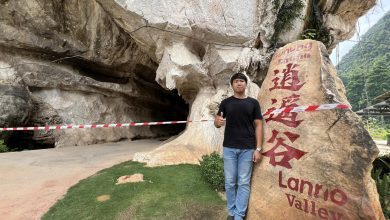A Voice for the Orang Asli
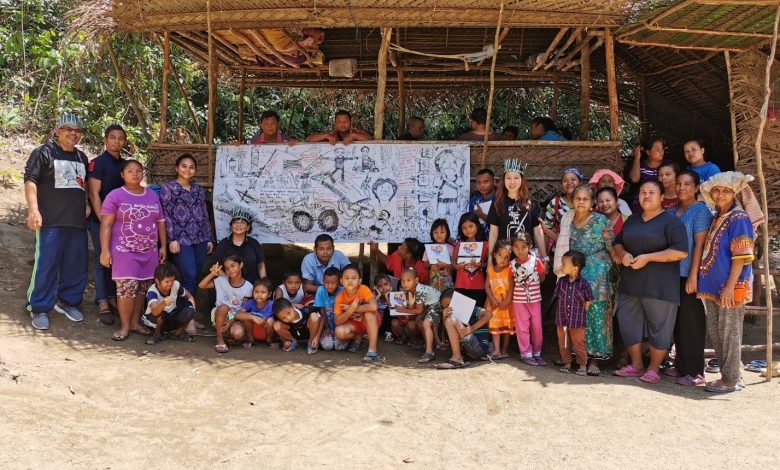

By Chris Teh & Gisele Soo
As a final push to the ongoing legal proceeding regarding the building of a mini-hydro dam at Kampung Ulu Geruntum, Gopeng by Perak Hydro Renewable Energy Corporation, two concerned Perakeans, Roz Hussin and Chan Yuen-Li, organised an art workshop at the location recently.
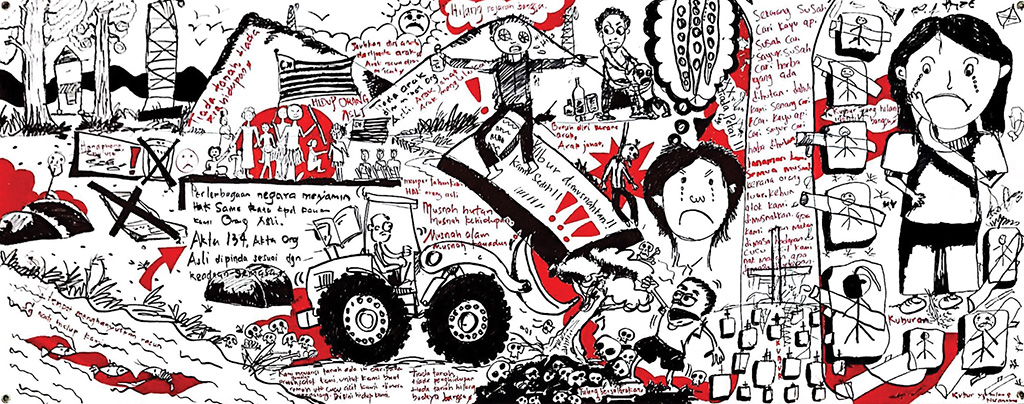

The aim was to provide relief to the Orang Asli community as they endure the abrupt changes to their lives. The villagers have built a blockade on their former durian orchard, now a flattened ground and the site for a turbine to generate electricity from the dam.
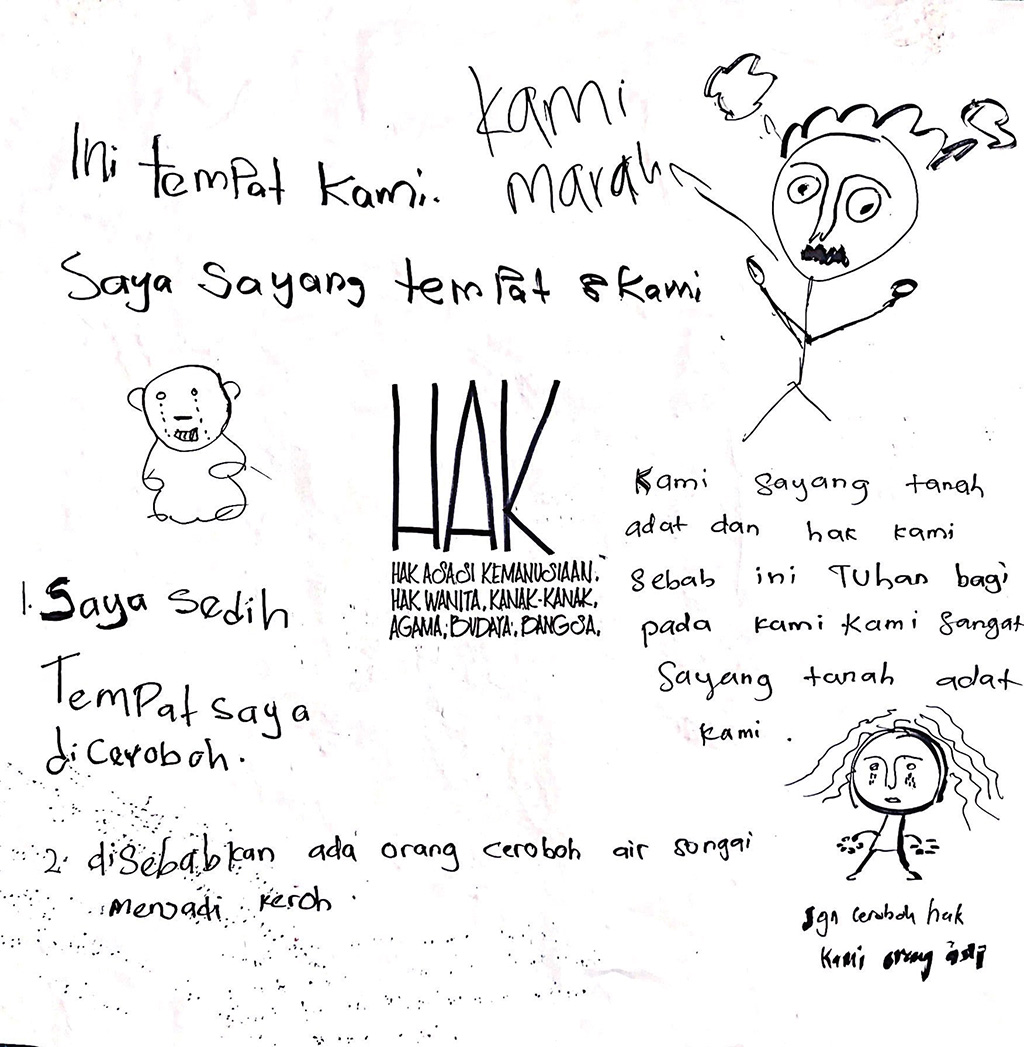

With 20 pieces of 3ft x 3ft large format paper and a supersized 3ft x 8ft banner, the Orang Asli drew their frustrations and impending fate bearing five factors in mind: hak (civil human rights), asli (indigenous), asas (basic needs), alam (environment) and X (‘cross’ – juxtaposition of sensitive issues such as taking away of the Orang Asli’s forest and construction of the mini dam).


Speaking on the reasons behind the workshop, Hussin explained, “We’d like to provide an opportunity for the Orang Asli to articulate their concerns to the outside world. Usually, when issues like these are being voiced out, it’s done through the Tok Batin (tribe chief). Even with the best of intentions, if the information is channelled from top-level individuals, it’ll be inaccurate.
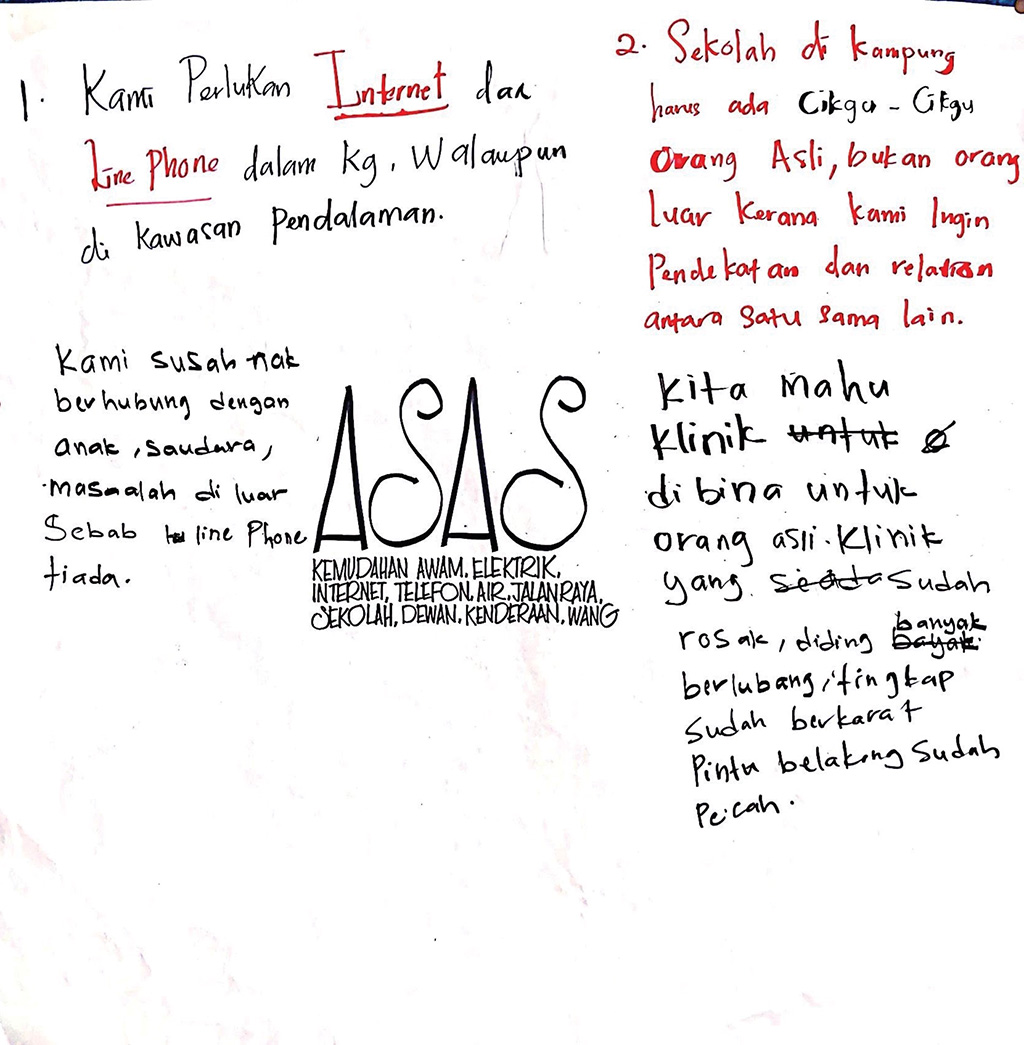

“The Semai in Kampung Ulu Geruntum are not being heard properly,” she added. “Yes, there are people that offered help, but they didn’t ask what form of help the tribe needs. Thus, they’ve no idea how to bring up certain topics, especially embarrassing ones.”
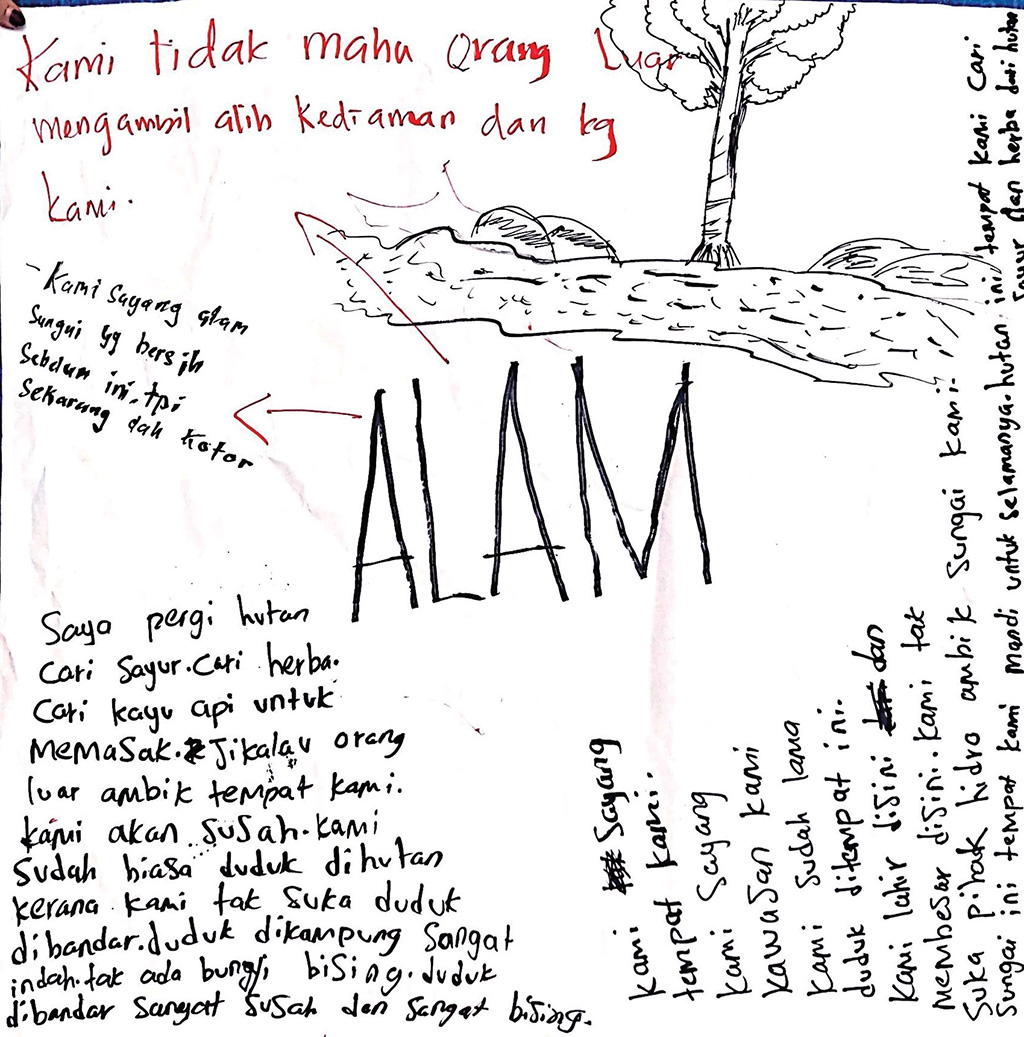

“Since the Orang Asli don’t have a proper platform to voice their objections, they resort to violence and drug abuse,” Hussin added. “Worse, Orang Asli children sent to schools in town are bullied because they cannot speak the major languages as well as the other children do.
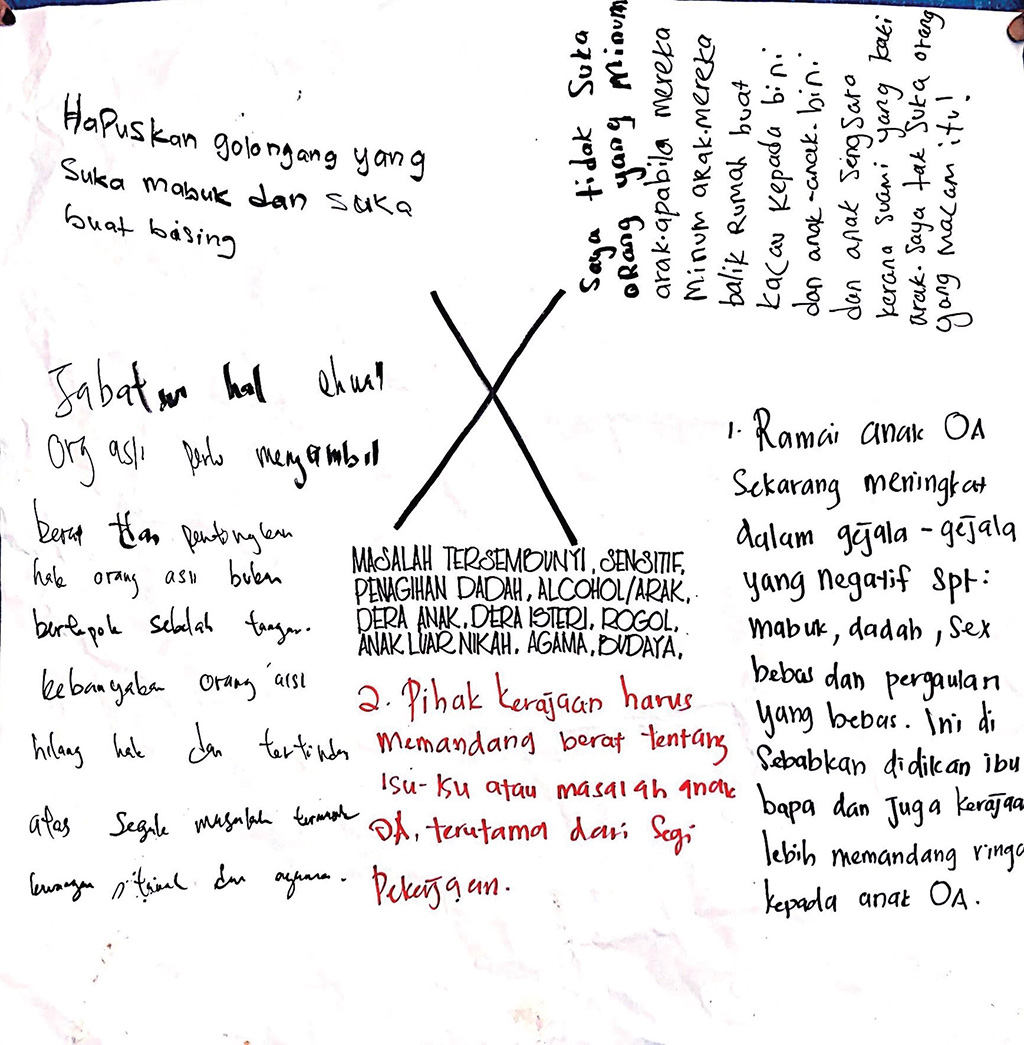

“We (Malaysian majority) are not stopped from speaking our mother language,” Hussin elaborated. “The Orang Asli, especially the younger ones, are told not to speak their own language in schools.”
In the banner and large papers, recurring problems illustrated by the Semai tribe are drunkards and the taking away of their sanctuary.
“We’d like some basic necessities such as landline phone and the internet.”; “We don’t want intruders to take over our residence!”; “We have a say in this matter!” and “I hate drunkards that physically abuse my family!” were some of the comments left by women of the tribe on the papers.
One particular drawing from a kid of the tribe depicts a face in black and white halves.
“I asked the kid what the drawing meant. She said it’s a depiction of a mother and daughter who died together because they couldn’t go to a clinic on time,” Hussin explained. “It is so sad to hear.”
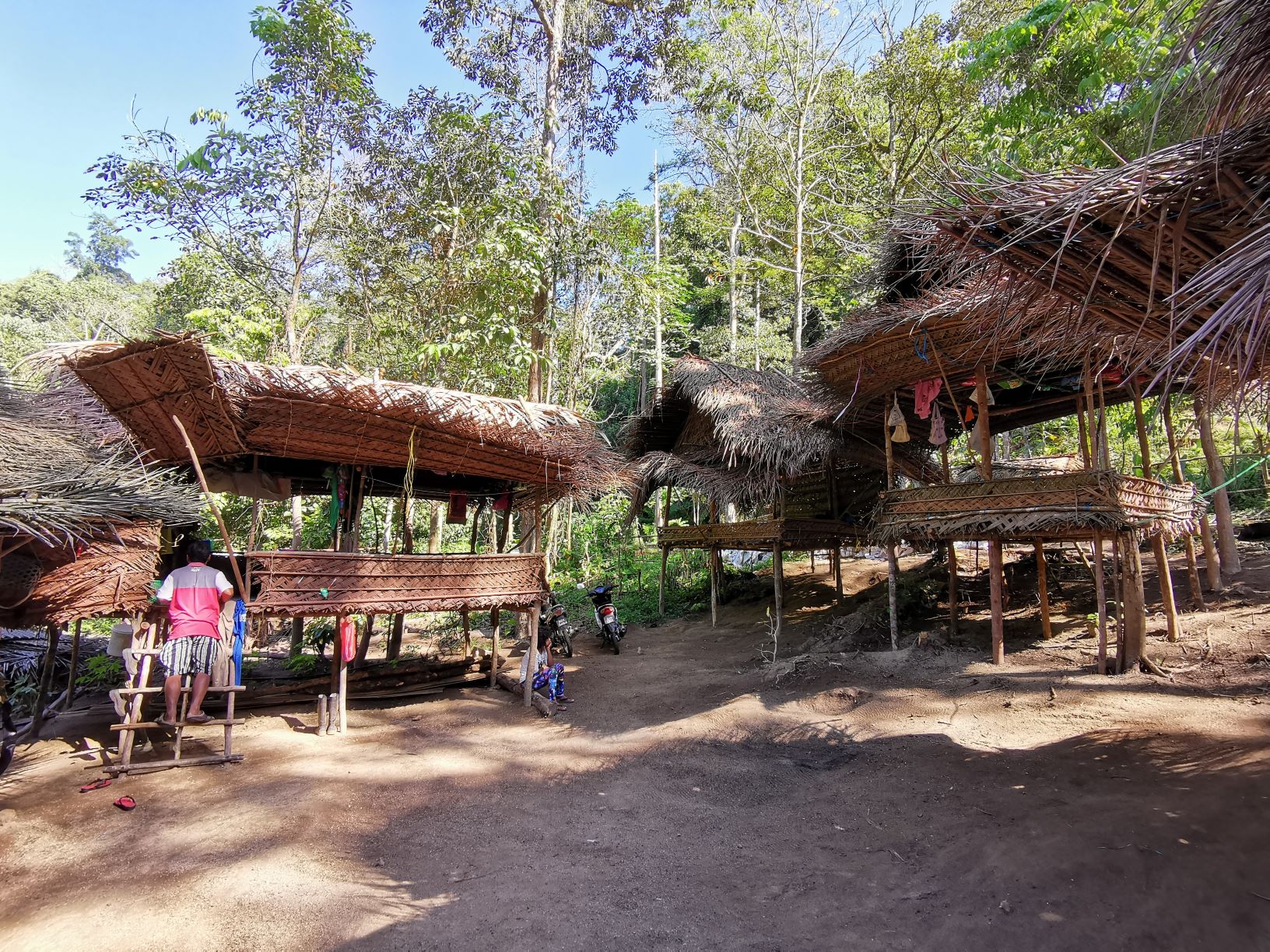

To make way for development, the Semai’s burial ground was bulldozed and is now just another pathway to more opening for lands near the mountaintop.


“A 5km-long pipe is to be built from the mini-dam to the location of the blockade,” Yuen-Li said. “If the mini-dam project goes through, 95 per cent of the water will be channelled to the turbine for electricity generation purposes.
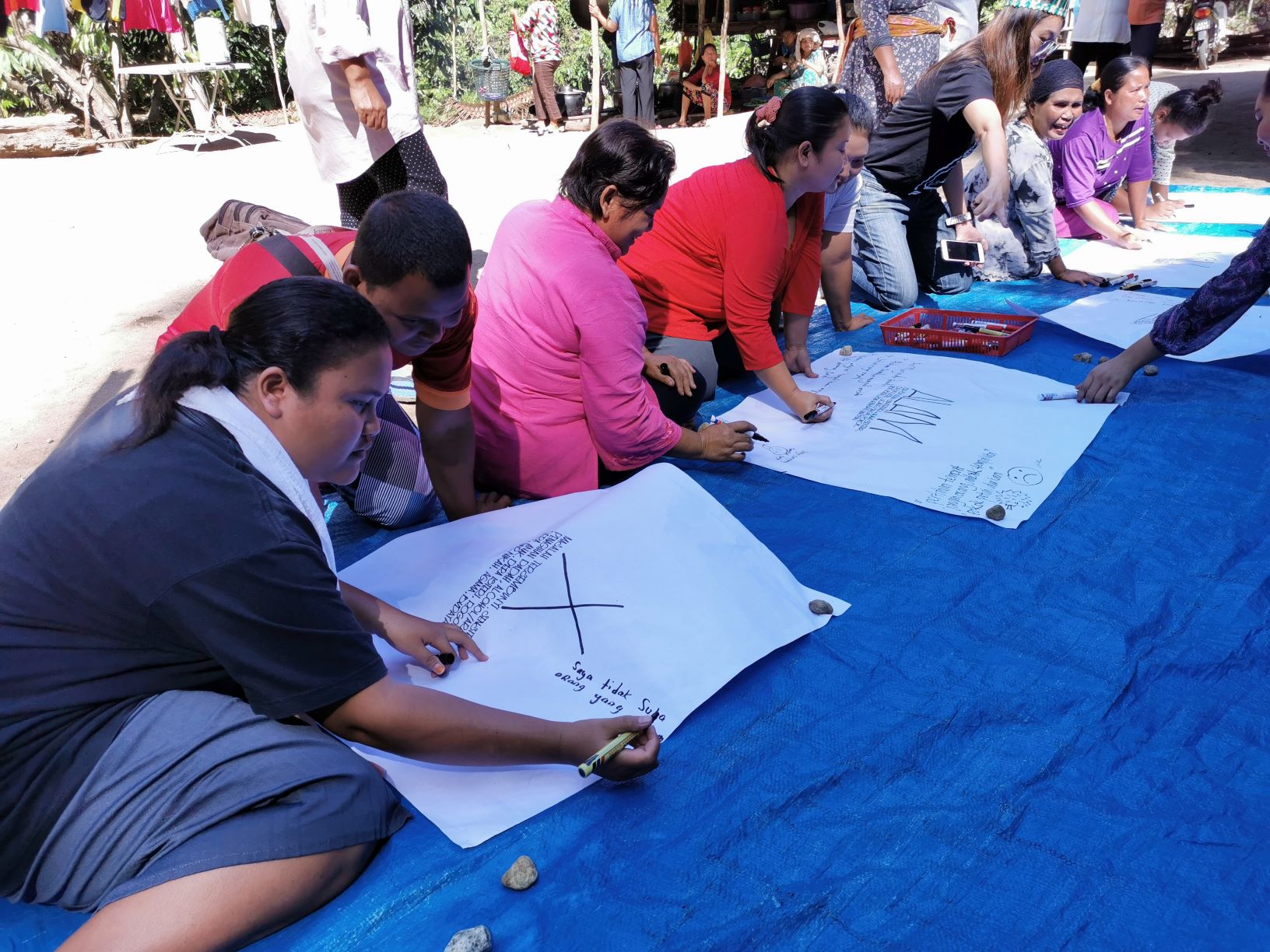

“What about the remaining volume of water? The Orang Asli depend on the river for most of their daily activities,” she stressed. “The company of the mini-dam project promised that it won’t affect the livelihood of the Orang Asli but they didn’t keep their promise.
“Cutting down the vast types of forest trees will definitely destroy the environment,” Yuen-Li added. “Giving way to profit-making monocultural forest trees such as generic palm oil trees and rubber trees is detrimental. You’ll never be able to see the diversity of plants and animals that true nature can give.”
As a founder of Nomad Adventure, an adventure company focusing on various outdoor activities such as white-water rafting and jungle trekking, Yuen-Li stressed that the cutting down of forest trees in the Ulu Geruntum area for development purposes will impact Gopeng as a tourism destination greatly.
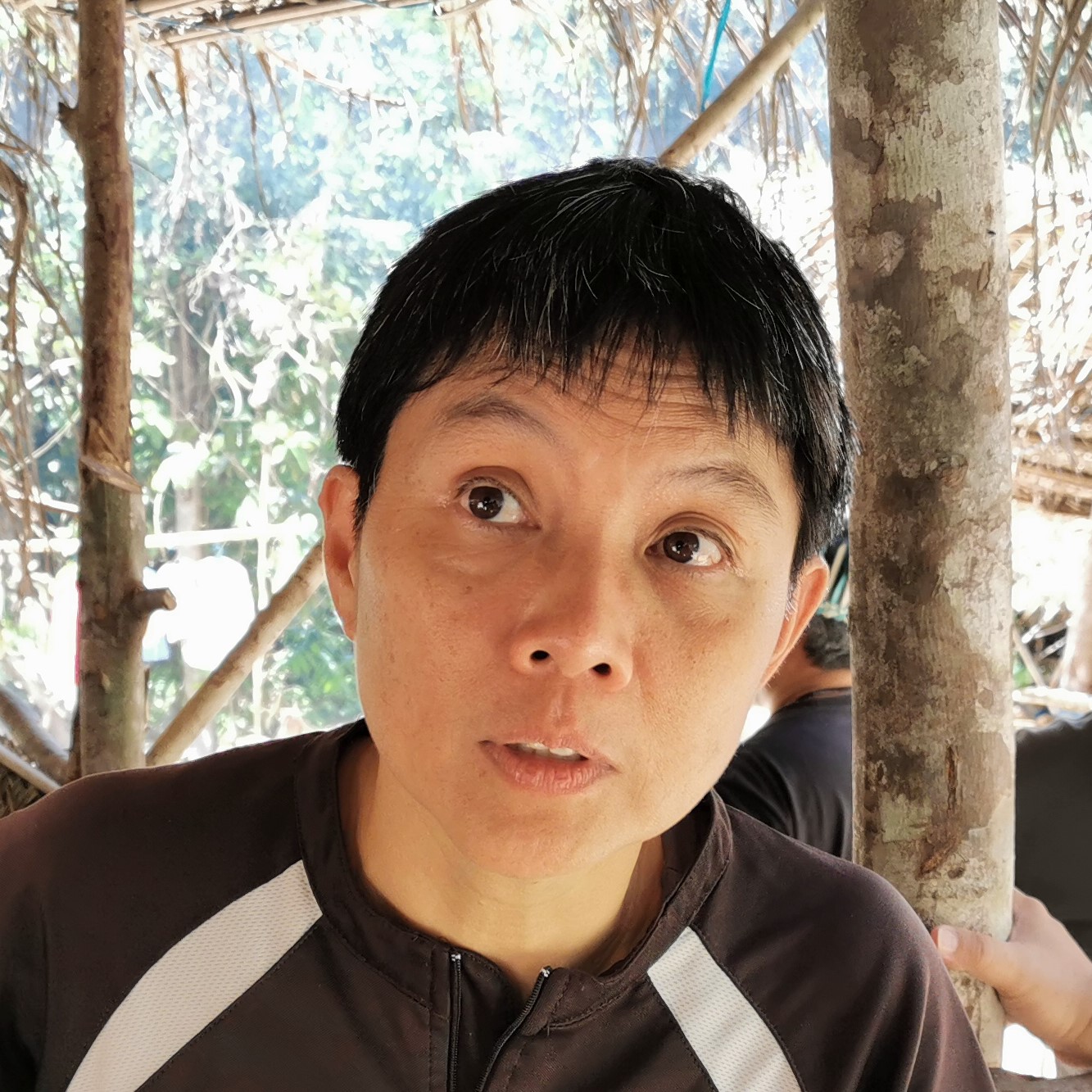

“Since 2017, flooding has become more severe because no trees and plants were available to absorb the high volumes of rainwater,” she lamented. “Nowadays, whenever there is dry weather, water levels are lower than usual. This doesn’t make for a pleasant experience for water-rafting enthusiasts.”
“To the Orang Asli, the jungle is both their sanctuary and their blood and sweat,” Hussin expressed. “Just for the purpose of developing the land, a few centuries of their work are gone.
“I understand that everyone will eventually need to improve their quality of life but that takes time. The same applies to the Orang Asli,” she bemoaned. “Driving them to desperation isn’t the way. Destroying their land of living and their burial grounds is definitely unacceptable.


“This is my first time doing an art therapy workshop with Malaysians, the true ones to be exact,” Hussin noted. “I lived outside of Malaysia for a few years. It is high time that I do something to contribute to the country now that I’m back. I’m never happier than doing this for the real Malaysians.”
Hussin and Yuen-Li’s efforts show that one doesn’t have to be a prominent figure to help the Orang Asli.
“If you see an Orang Asli around you, welcome them with open arms and help them out wherever you can,” Hussin urged. “Never exclude them.”
The final hearing for the court case will be on March 2 at the Ipoh High Court.


